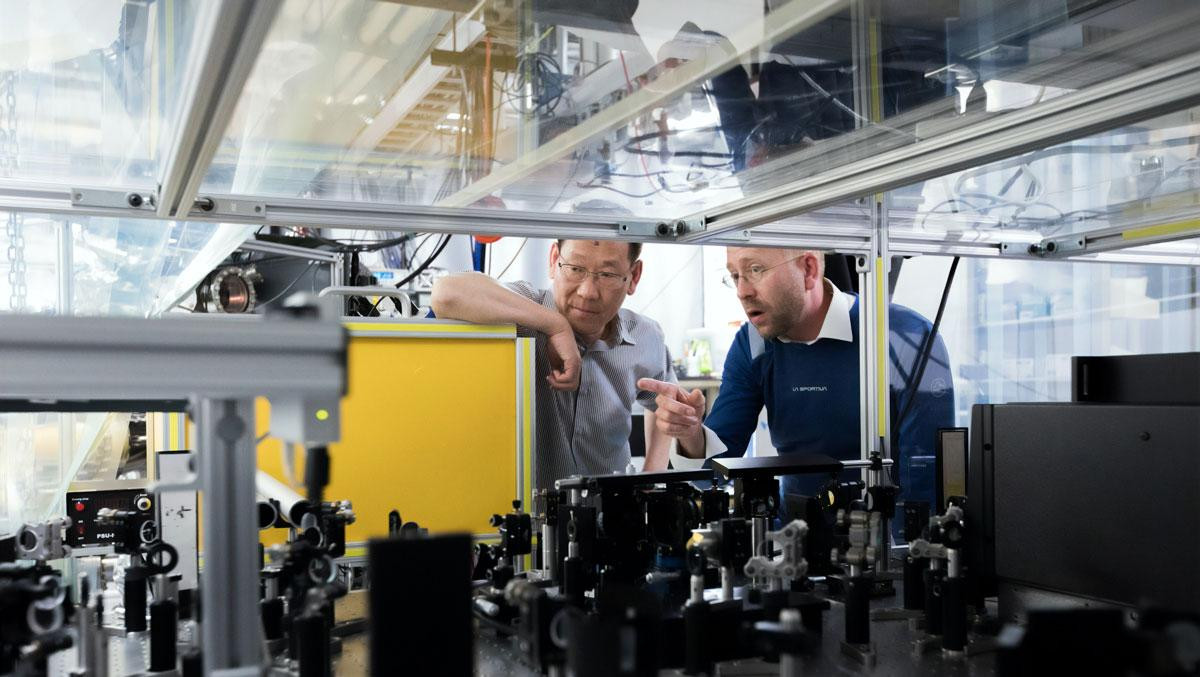The most discernible difference between discrete and process manufacturing is the way the product is created. In discrete manufacturing, identical products are duplicated by way of an assembly line. The raw materials used to create these products are the same from the first job to the next. Process manufacturing becomes more intricate due to its nature in converting/transforming raw materials. With process manufacturing the end product is unable to be unassembled to its original raw materials.
Further reading examines the specific aspects that make process manufacturing ERP Software unique.
What makes Process ERP Software Unique?
Specific Gravity
Specific gravity is a calculation used to convert volume measurements into weight measurements, such as transposing a measurement of pounds into gallons. For example, a liquid may be purchased and inventoried in pounds, but measured in liters when used, or, a liquid may need a weight calculation for the Bill of Lading. Most discrete ERP software does not possess the tools required for such conversion calculation.
Percentage Formulation
With process manufacturing it can be beneficial for the lab to create formulas by entering the percentage of each ingredient. For example, 10% water, 20% starch, and 70% acacia powder. A quality process ERP software solution makes this formulation breakdown possible.
Ingredient Formulation
A superior process ERP software solution should easily assist your chemist in setting up product formulas. Similarly, when user defined calculations are entered, the software should automatically recalculate. For example, calculations could be made for calories or volatile organic compounds in the finished product, and the software should also allow the chemist to do “what if” calculations.
Percent Ingredients by Weight
Government regulations require a list of ingredients by weight percent. For example, both container labels and Material Safety Data Sheets (MSDS) require percent calculations for many ingredients. Again, specific gravity is used for these calculations. With a process ERP software system, these requirements can easily be met.
Decimal Places Used in Formulation
Most discrete ERP software is limited on the number of decimal places used for an ingredient. Discrete manufacturers produce items that are measured in “eaches,” for example when constructing a bicycle, one handlebar, two to four sprockets, two rims, one seat, etc. are needed. Comparably, when using a process ERP manufacturing system, a formula is set up for one unit, (pound, gallon, etc.) and the formula can be scaled up to any batch size. This often requires up to eight decimal places, for example, one gallon of liquid formula may require .00000231 pounds of an expensive dye.
Scalable Batch Tickets
Discrete ERP software is restricted by the number of worker orders that can be printed for each run. As discrete ERP software generally prints single work orders, process ERP software allows for the flexibility of printing multiple batch tickets. Case in point, if a ticket requires three manufacturing batches, three batch tickets will print.
Batch Processing vs. Route Step Processing
Process manufacturers add most, if not all, of their raw materials at one time. Discrete manufactures individually assemble materials at each work center and for each route step. For example, a discrete manufacturer may make the base of a chair at Work Center A and add the arms to the chair at Work Center B. As a result, it becomes difficult to track all components used in each work center. When the Bill of Material is comprised, each component is linked to a specified work center. After each component is utilized its usage is recorded. This complexity, which is very beneficial for a discrete manufacturer is of little value to a process manufacturer.
In-Process Quality Control Testing and Adjustments
A good ERP process manufacturing system is designed to record quality control (QC) tests while a batch is being made, and to record the raw material adjustments needed to bring a batch into required specifications. User-friendly options in a software batch ticket program are specifically designed to meet this demand.
Rework with Lot Control
A process ERP system’s batch ticket posting capability allows you to rework a batch made previously, with a batch currently being made, and to record the lot numbers for both the old batch and the combined batch.
Custom vs. Stock Formulas
A quality ERP process manufacturing system allows the manufacturer to fill a sales order that contains both a stock formula sold to multiple customers, as well as a custom item made solely for one order.
QC Testing and Lot Tracking per Batch
In process manufacturing, QC tests and lot numbers need to be tracked per batch. The data entry display capability of a process ERP software solution makes record keeping easy and efficient.
Certificate of Analysis per Batch
Process ERP software provides an optional automatic certificate of analysis at time of shipping.
Batch Recall
A quality ERP process manufacturing system has a meticulous, instant report, which allows you to know where a bad batch of raw materials or finished formula has ended up.
MSDS
Per the Global Harmonization Standards MSDS, or SDS effective June 2015, are necessary for any process manufacturer that makes hazardous material. A number of products that may be indistinctly hazardous also require an MSDS. A quality process ERP software solution should be able to accommodate the upcoming changes.
Batch Quarantine
Process manufacturers need to test batches of materials and quarantine materials by batch. This includes raw materials, intermediates, and finished formula. Process ERP software makes testing and quarantine easy through batch tickets, inventory control, and quality control functionalities.
cGMP (Current Good Manufacturing Practice)
Process ERP software assists manufacturers in making quality products that conform to Food and Drug Administration regulation.
Want To Improve Process Manufacturing In Your Business?
Talk to a manufacturing ERP expert at Admiral Consulting Group today. This no-obligation consultation will offer insights into what tools you might need to improve order fulfillment and how to implement those changes effectively.



